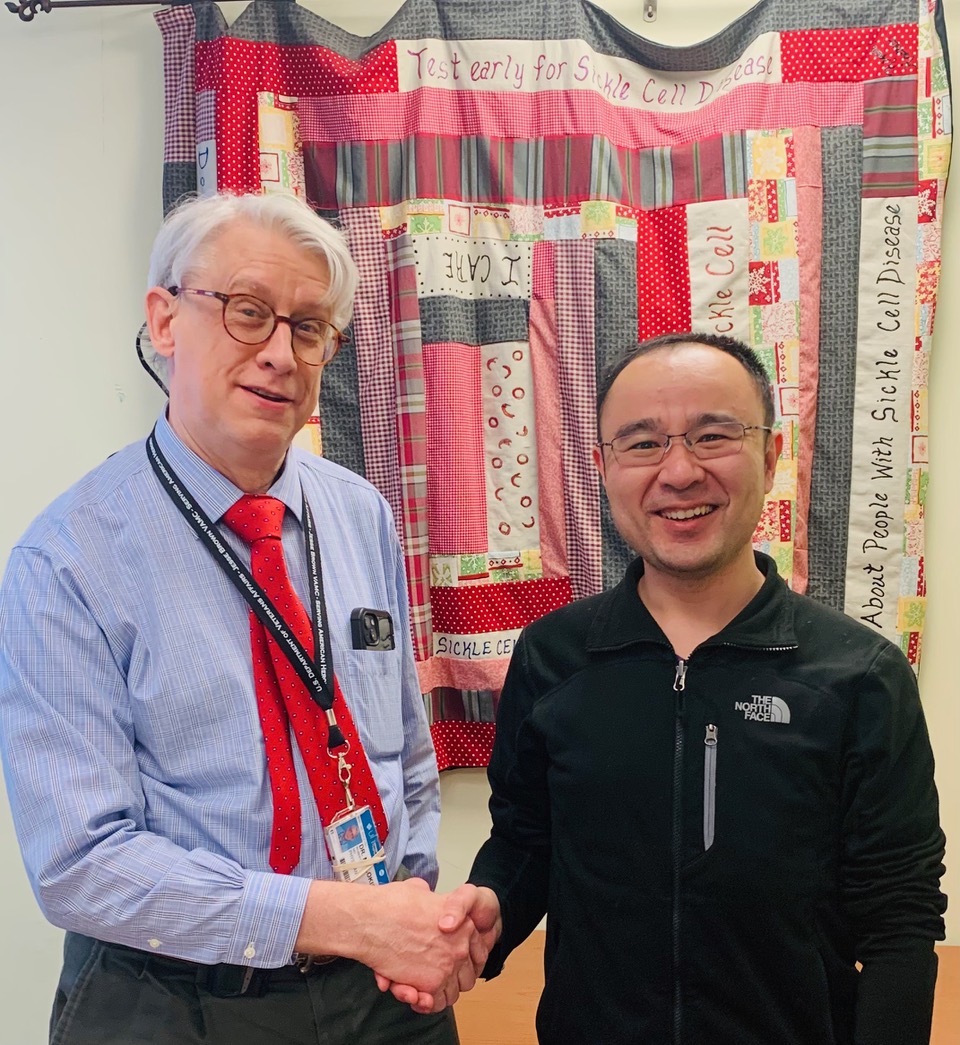Peng wins junior faculty award from American Society of Hematology
block 1 Heading link

Richard and Loan Hill Department of Biomedical Engineering Assistant Professor and member of the Center for Bioinformatics and Quantitative Biology Zhangli Peng has received the American Society of Hematology 2023 Junior Faculty Scholar Award.
Peng was one of 19 junior faculty recipients to win the award. As one of the most prestigious research award programs, the honor recognizes junior faculty dedicating a career to hematology research and funds basic, translational, and clinical research that furthers the understanding and treatment of blood disorders.
He received $150,000 to further his research.
Peng and his mentors, Robert Molokie of Division of Hematology and Oncology at UI Health and Richard Waugh of University of Rochester, will use multiscale modeling to understand how mutations and modifications affect red blood cells during splenic filtrations.
Originally trained as a structural engineer with all his degrees in civil engineering, Peng has been applying the principles of structural analysis to understand the structures of red blood cells for more than a decade.
The project will address several unanswered important questions in red blood cell physiology, help reveal the mechanisms of these disorders, and understand how the modifications of red blood cell proteins and the consequential shape change impact the splenic filtration of engineered therapeutic red blood cells.
Starting this July, the research will specifically look to understand how mutations affect red blood cells during splenic filtrations in blood disorders such as hereditary spherocytosis, elliptocytosis, and sickle cell disease.
This research will also impact gene therapy for red blood cell membrane disorders, provide insight on the effects of fever on red blood cell mechanics, and red blood cells as therapeutic carriers.
Peng said he is grateful for the recognition he has received through winning this award and that the ASH also accepted his important research and its contribution to hematology. He also expressed gratitude for his mentors and their support.
“I was surprised and excited to receive this award,” Peng said.